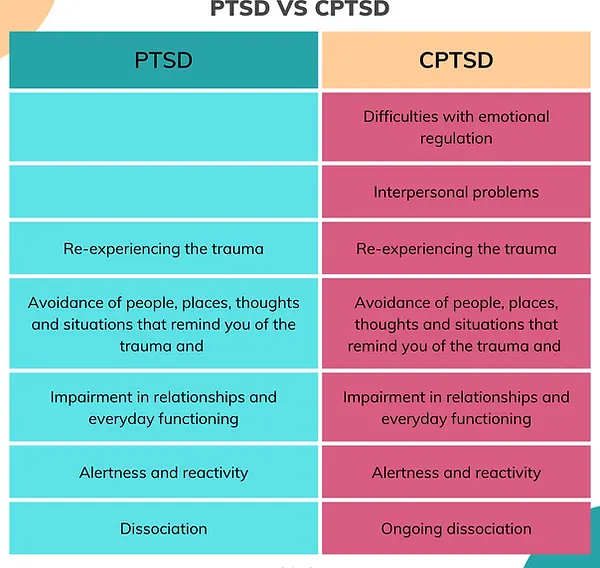
C-PTSD
COMPLEX POST-TRAUMTIC STRESS DISORDER
In the fire service, you will hear several terms used to describe the emotional and psychological impact of trauma: PTSD, PTSI and C-PTSD. While they share similarities, each term highlights a different aspect of how trauma affects the mind and body.
C-PTSD develops after repeated or prolonged exposure to trauma - not just one incident. In the fire service, that might mean years of cumulative stress from countless medical calls, fires, fatalities, and emotional strain. Over time, that constant exposure can rewire how the body and mind respond to stress.
C-PTSD often reflects the toll of many years of silent accumulation, where the brain never has time to recover before the next trauma arrives. It is the result of carrying years of unprocessed stress, grief, and loss without enough time or support. Many firefighters describe it as "death by a thousand cuts" - not one moment that broke them, but thousands that slowly wore them down.
Unlike traditional PTSD, which is often linked to one specific event, C-PTSD reflects chronic trauma that alters how a person thinks, feels, and reacts. The nervous system learns to stay on guard, and the body forgets what "calm" feels like. The brain's alarm system - the amygdala - stays hyper-alert, flooding the system with stress hormones even when there's no immediate danger.
This prolonged activation can lead to emotional numbness, irritability, exhaustion, and difficulty connecting with others. Over time, firefighters may begin to feel detached from their emotions, their families, or even their sense of self outside of the uniform.
COMMON C-PTSD SYMPTOMS
While every firefighter's experience is unique, many share similar challenges:
-
Emotional Regulation: Mood swings, sudden anger, or emotional shutdowns.
-
Negative Self-Perception: Persistent guilt, shame or feeling like a failure.
-
Chronic Anxiety or Hyper-Vigilance: Always on edge, unable to relax off shift.
-
Difficulty Trusting Others: Feeling misunderstood or disconnected, even from loved ones.
-
Isolation and Detachment: Pulling away from friends, family, or the firehouse crew.
-
Physical Symptoms: Headaches, fatigue, gastrointestinal issues, or chronic pain linked to stress.
-
Flashbacks and Nightmares: Reliving past calls or hearing echoes of events that happened years ago.
C-PTSD doesn't happen overnight. It builds slowly, often without notice, util one day the symptoms can no longer be ignored.
HOW IT DIFFERS FROM PTSD
PTSD often develops after a single, identifiable traumatic event - such as a major line-of-duty death or catastrophic fire.
C-PTSD, however, stems from repeated trauma without recovery time - the constant cycle of adrenaline, exposure and emotional suppression.
In PTSD, the brain's memory system misfires occasionally.
In C-PTSD, it's been living in overdrive for years.
Firefighters with C-PTSD may also experience:
-
A distorted sense of self ("I'm not who I use to be.")
-
A persistent feeling of danger, even off duty.
-
Loss of meaning or purpose beyond the job.
-
Difficulty feeling joy or satisfaction in normal life.
WHY FIREFIGHTERS ARE ESPECIALLY VULNERABLE
Fire service culture prizes bravery, composure, and toughness - qualities that save lives on scene but can make emotional recovery difficult afterward. We are trained to compartmentalize, to move form one call to the next without showing emotion. Over time, that suppression becomes second nature but the brain and body keep score.
The combination of chronic exposure, shift work, lack of sleep, survivor's guilt and limit recovery time creates the perfect storm for C-PTSD to develop. And because the culture often labels vulnerability as weakness, many firefighters suffer in silence far longer than they should.
"THE FIRE SERVICE TEACHES YOU TO SURVIVE THE FLAMES, BUT NOT ALWAYS THE AFTERMATH."
